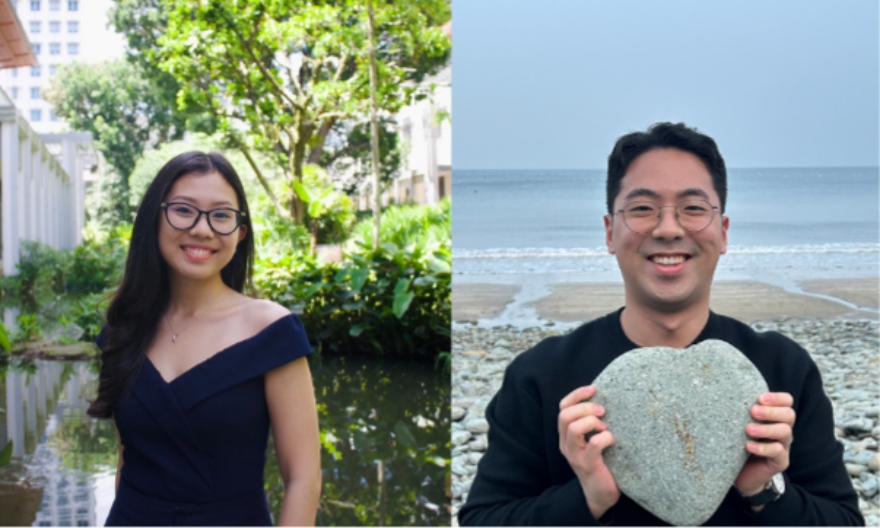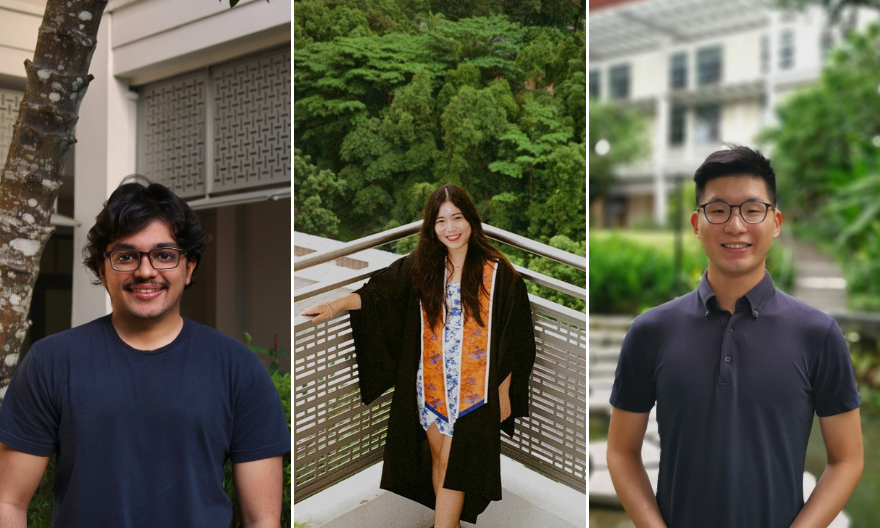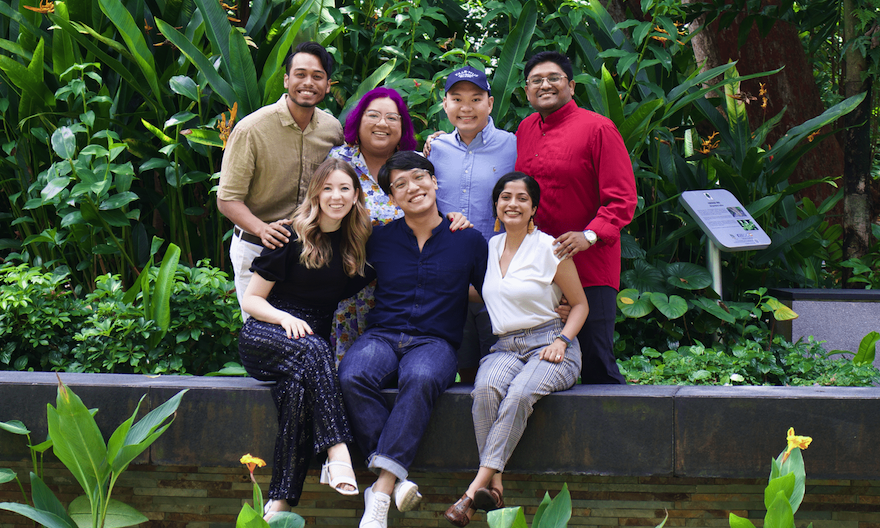Yale-NUS alumni publish research
Alumni share motivations and discoveries behind research
Yale-NUS alumni pursue many career paths after graduation. For some, this includes juggling work or post-graduate studies while also getting their research published in notable academic journals.
 Angad Srivastava (Class of 2021) co-authored a paper in Human-Computer Interaction journal, ToCHI. Image provided by Angad Srivastava.
Angad Srivastava (Class of 2021) co-authored a paper in Human-Computer Interaction journal, ToCHI. Image provided by Angad Srivastava.
Angad Srivastava (Class of 2021) recently co-authored a paper in Human-Computer Interaction journal, ToCHI. He and his fellow researchers wanted to study how they might make typing on smartphones more convenient. The team investigated whether desktop-style keyboard shortcuts could be replicated on the limited screen space of smartphone interfaces, and eventually did so by using the SoftCut mobile keyboard prototypes Angad helped develop.
The research that Angad conducted for the publication was done remotely over a nine-week internship at the Singapore University of Technology and Design’s HUman Augmentation & Interaction Laboratory (SUTD SHUAILab), supported by the Centre for International & Professional Experience (CIPE) during his semester break in 2020. During his internship, Angad was able to hone his User Experience (UX) design and research skills, which enabled him to run two experiments that eventually contributed to the research paper’s findings
Angad credited the College greatly for helping him to develop his research skills. In particular, he had fond memories of all his Year 3 psychology courses, especially Statistics and Research Methods. Other Psychology Laboratory courses also enabled him to be equipped with the relevant skills and research methods that he now applies to his work.
Angad is currently a Junior UX designer at Ubisoft, a top video game company, where he leverages his internship experience and background as a psychology major to contribute to player-centric design. These skills, combined with critical thinking abilities, liberal arts exposure, and collaboration experience gained at Yale-NUS, help Angad as he works in Ubisoft’s Singapore studio.
 Al Lim (Class of 2019) contributed a book chapter for the publication Covid-19 in Southeast Asia: Insights for a Post-Pandemic World. Image provided by Al Lim.
Al Lim (Class of 2019) contributed a book chapter for the publication Covid-19 in Southeast Asia: Insights for a Post-Pandemic World. Image provided by Al Lim.
Another alumnus who has published academic research is Al Lim (Class of 2019), currently a PhD student at Yale’s combined Anthropology and Environmental Studies programme.
In his book chapter for the publication Covid-19 in Southeast Asia: Insights for a Post-Pandemic World, Al argued that food insecurity should be approached through an anthropological lens. His research answers the question, “Can Singapore address its food security just by increasing production?” According to Al, solely increasing food will never be the solution to eradicating hunger, especially without attention to its wider social processes.
Al began work on his research in the early days of COVID-19. The initial stages were challenging, given the constraints and anxiety surrounding the pandemic. Al eventually turned to his Yale-NUS peers to work around these conditions.
“I gathered most data from informal conversations, talks and online reports. This was helped tremendously by conversations and activities with people from the College. For example, The Maju Collective, co-run by Amanda Woon as well as fellow alumni Ng Aik Yang (Class of 2022) and Jolene Lum (Class of 2019) hosted a week-long hackathon where I got to hear about research on food insecurity. After writing the chapter, I also got very helpful comments from Isabelle Li (Class of 2019) and Serena Quay (Class of 2019).”
After his time at Yale-NUS, Al wrote articles for several academic publications on topics such as infrastructure and sustainability. For Al, several mentors and classes contributed to the critical thinking used in his research and further studies. “The academic environment at Yale-NUS was incredible and unparalleled. An amazing mentor I had was then Yale-NUS Assistant Professor of Social Sciences (Urban Studies) Nick R Smith – he was my capstone advisor, and I took many classes and researched with him. Urban Theory was one of the most intense and rewarding classes that I took at Yale-NUS, and I continue to build on some of the theoretical foundations that I was taught in the course,” he shared. The entire academic and residential learning environment alongside professors from his time at Yale-NUS and Yale also greatly inspired and supported his journey in academia.





